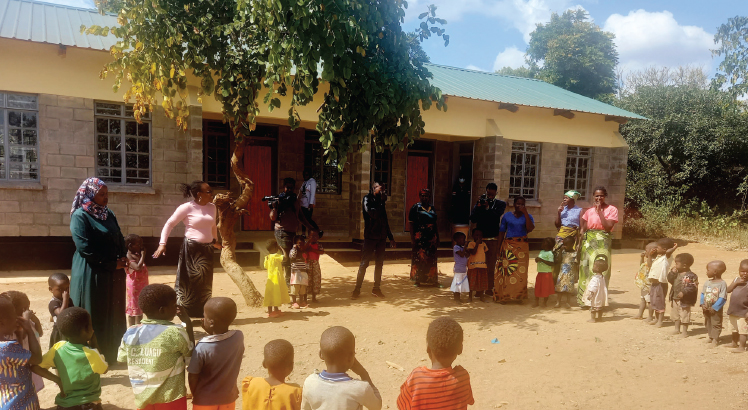Improving infrastructure for quality childhood development
The Malawi Government adopted early childhood development (ECD) to drive access to nutrition and protection as well as stimulate healthy brain development of children in their first 1 000 days.
The first centre was established in 1966, but the real surge happened towards late 1990s and by 2007, there were 5 665 community-based care centres (CBCCs), caring for 407 468 children aged between three and five.
Despite this early intervention, many children are still missing out on the “eat, play and love” they need for their brains to mature properly, according to the United Nations Children’s Fund.

A thorough assessment by the Government of Malawi revealed that the programme is facing a number of problems such as poor infrastructure, inadequate nutrition, lack of proper training and motivation of the caregivers who work on voluntary basis.
These challenges hampered delivery of desired outputs since those responsible were not equipped with what to deliver, how to mobilise and prepare nutritional food for the children and poor infrastructure for the health and safety of the targeted children.
Alinafe CBCC caregiver Brandina Kamadzi from Traditional Authority (T/A) Mlonyeni in Mchinji District narrates the hardships they faced and how communities ensured that the programme survives.
“The first concern wasthe shelter we used because we deal with children who need not only education and food, but also protection from bad weather.
Most of the structures here in Mchinji were made from grass and mud which is not ideal. We also lacked teaching materials such that we relied on improvised ones.
“Most importantly, we need to provide these children with food, but we ran out of rations few months after harvesting because we rely on what the CBCC committee produces.
Substantiating Kamadzi’s assertions, group village head Sigereta from T/A Mduwa in the district says for 11 years, 16 villages surrounding Malikha CBCC had for 11 years been housed in a poor structure.
“We have walked and talked about the need for a modern CBCC structure because the one we had was poor but it supported 16 villages,” says GHV Sigereta.
To mitigate these challenges, government through the World Bank’s $60 million (about K62 billion) support launched a three and a half years project called Investing in Early Years for Growth and Productivity in Malawi from January 2021 to June 2024 to improve the coverage and utilisation of ECDs services with focus on nutrition, stimulation and early learning from conception to 59 months, in selected districts.
The project targets 1.2 million children aged 0-59 months, 2.2 million boys and girls aged 10-19 years and 370 500 pregnant and lactating mothers in the districts it is running.
Deputy Minister of Gender, Community development and Social Welfare Agnes Nkusa Nkhoma says the project’s targets include construction of modern CBCCs, empowering communities and CBCCs committees on nutritional activities and training of caregivers to align them with the recommended ECD syllabus.
Says Nkusa Nkhoma: “I am impressed with the way this project has turned into. It simply shows that we are on track.”
Mchinji ECD coordinator Hannah Chapata Mangani said 15 modern CBCCs have been constructed in one and a half years, 120 caregivers and 225 committee members trained , chicken distributed and fruit trees planted around the CBCCs.
“We have achieved what we planned in this project, but with support from the ministry, we are still working with communities to ensure that every eligible child is attending CBCC in their communities,” says Mangani.






One Comment